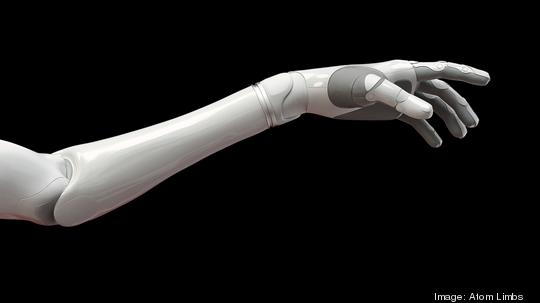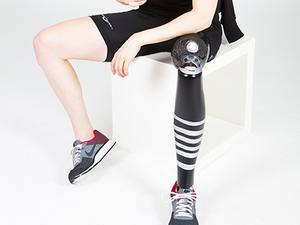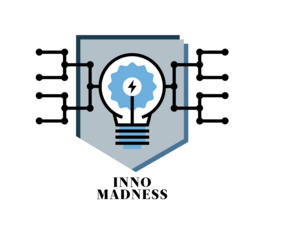
A San Carlos startup developing "mind-controlled" prosthetics has raised over $4 million in a crowd-sourced funding round that will close by the end of April.
Atom Limbs has raised $6 million over multiple rounds on WeFunder and over $7 million total since it was founded in 2019, including an early investment from Village Global.
Its first product will be a full arm for above-the-elbow amputees called the Atom Touch, which the company is aiming to launch in 2023. The arm is intended to provide fully functional movements, including in the fingers, by reading electrical signals emitted by an amputee's stump.
CEO Tyler Hayes co-founded the startup with Chief Design Officer Doug Satzger and CTO Eric Monsef. Satzger and Monsef both previously worked at Apple, and Hayes was part of the founding team at Bebo when it was acquired by Amazon's Twitch in 2019.
Hayes and Satzger were looking for ways to impact people's lives and first explored ideas around reverse engineering the brain.
"I have a background in neuroscience. I can tell you it's very hard," Hayes said. "So we said, instead of reverse engineering the brain, what about the body? And then we looked at all the biggest problems there. And way above the rest at the top of the list was people who lost arms are dealing with the worst technology right now that costs the most money."
Atom Limb's first product will also give users basic sensory feedback such as touch and pressure, which are important sensations for grasping and holding objects.
Functional prosthetic arms can cost tens of thousands of dollars and still be uncomfortable and bulky. Atom Limbs is designing its first product to cost around $20,000, have an all-day battery, and only weigh around five pounds, Hayes told me.
Researchers at the University of Michigan have also been studying and developing intuitive prosthetics that give users a full range of motion by tapping into nerve signals. A New York-based startup called Unlimited Tomorrow offers what it calls a bionic arm for just under $8,000.
The idea of a mind-controlled robotic arm conjures up images of brain-computer interfaces, an area of study that seeks to enable people to operate computers with just their thoughts. Elon Musk's Neuralink is one such company researching the concept, but it's still a highly invasive process that requires implanting electrodes into the brain (of monkeys, not humans, for now).
Prosthetics like those from Atom Limbs are designed to function intuitively without wires or surgery, and the company is designing its product to be modular so that it can be more easily adapted into a below-the-elbow arm or even just a hand.
"We're listening to aggregated electrical activity that comes from your body," Hayes said. "It makes more sense to actually listen to the signals out here (in the extremities) than in the brain. If we put a million electrodes into the motor cortex in your brain, you still would have to do years of work to figure out what the person is trying to do."
Eventually, the company could expand into legs but is focused on the upper extremities at the moment.
Atom Limbs currently has a team of 15 employees, primarily in San Carlos, which Hayes wants to double over the next couple of years as the company works towards getting its first product to market by the end of 2023. That goalpost is also dependent on FDA approval.
There are around 2 million people in the U.S. who have lost limbs, a number that is expected to increase to 3.6 million by 2050, according to the Nashville-based Amputee Coalition.








